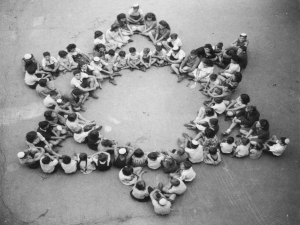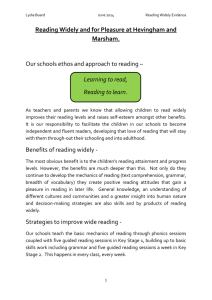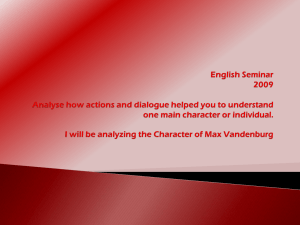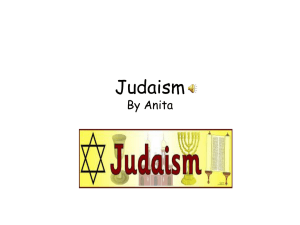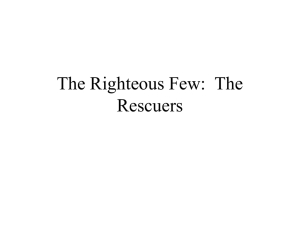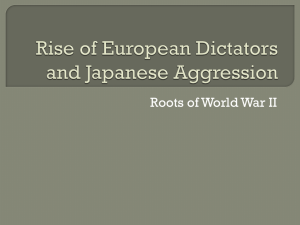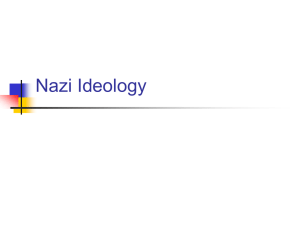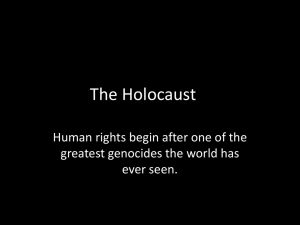Unit 4 Week 2 * Day 1
advertisement
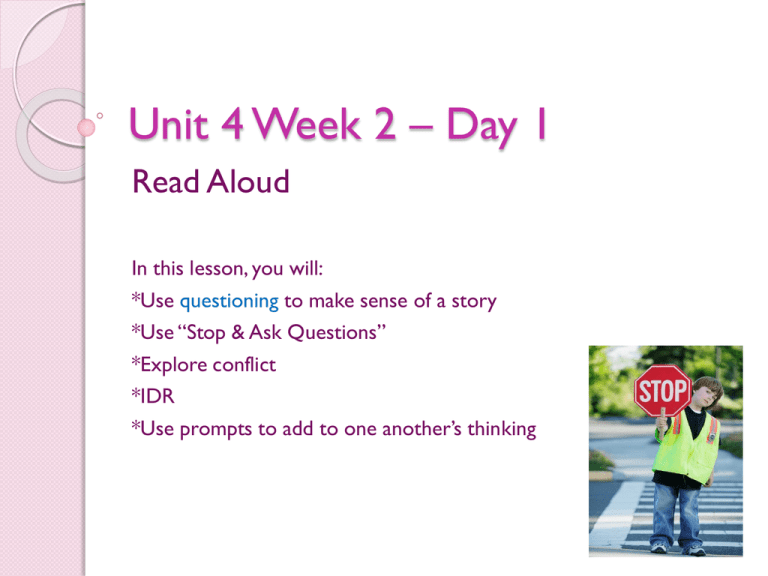
Unit 4 Week 2 – Day 1 Read Aloud In this lesson, you will: *Use questioning to make sense of a story *Use “Stop & Ask Questions” *Explore conflict *IDR *Use prompts to add to one another’s thinking Review Reading Comprehension Strategies Chart We’ve been exploring common elements of stories. Recognizing story elements is a powerful strategy you can use to better understand stories you hear & read independently. Questioning is also a powerful strategy for helping you pay close attention to a text. You’ve used this with expository texts. Now, you’ll be using it with narrative texts Introduce Star of Fear, Star of Hope The setting of this story is France during World War II. During the war, Germany conquered France & much of Europe. o The Nazi rulers of Germany believed that they represented a superior race, and they despised Jews & other groups of people whom they believed to be inferior. o In the countries they conquered, the Germans persecuted Jews, forcing them from their homes and into concentration camps, where millions were killed. Introduction (cont.’) The Germans required Jews in France and other occupied countries to sew yellow stars (the “Star of David”, a traditional symbol of Judaism) onto their clothing so that they could be easily identified. Many people tried to help the Jews by hiding them, but others helped persecute the Jews. Read Aloud with “Stop & Ask Questions” Because the story is long, I will read the first part today, and the second part later in the week. You will use “Stop & Ask Questions” as you listen to the story. Please turn to page 20 in your Student Response book. As I read aloud, I will stop four times for you to think about & write your questions. We will use your questions to discuss the story after I read it. Read Aloud What question can you ask about the story right now? Page 8 – Write your question on page 20 Page 12 – “ “ Page 16 – “ “ Page 22 – “ “ Using Questions to Discuss the Story in Pairs Review your questions and think about what you heard in the story. Put a check mark next to each question you think was answered by the story. Turn to Your Partner – Discuss the story using your questions. Think about what you heard in the story that helps answer some of your questions Discuss the Story as a Class Which questions got you and your partner talking about the reading? What did you hear that helped you discuss those questions? What is the setting of the story? Given the setting and circumstances, why does it make sense that Lydia wants to go home in the middle of the night? Helen tells Lydia, “You’re not my friend anymore!” How is Helen feeling in that moment? How does she feel afterward? Why? Reminders There are several problems in this story, including the fight between Lydia and Helen, Helen’s regret many years later about having rejected Lydia, the French policeman coming to the door to look for the neighbor, and the persecution of the Jews by the Nazis. Characters learn and change as a result of the story’s conflicts. You will hear the end of the story later in the week. You will revisit your questions and use them to think more about the story next time
